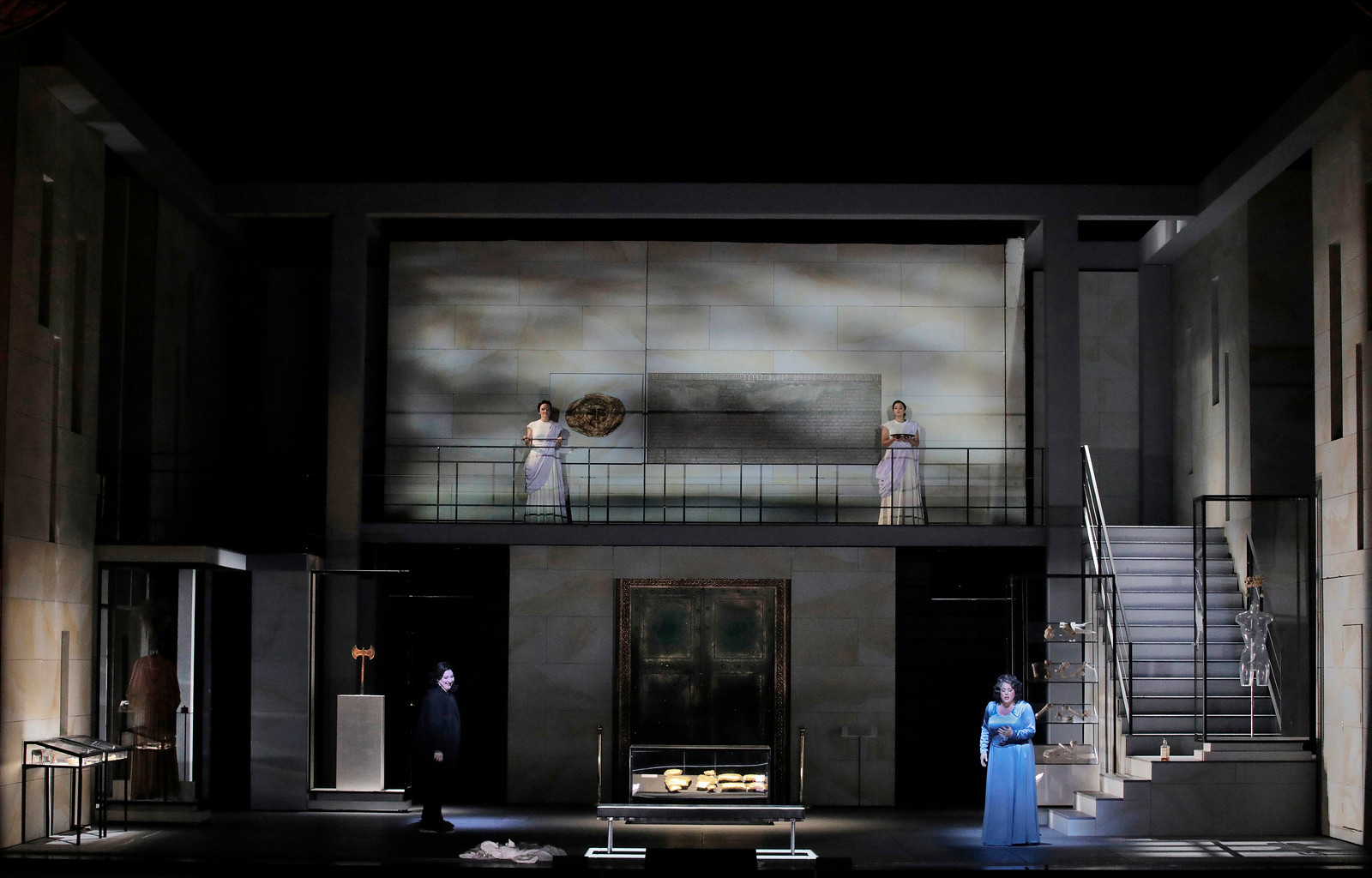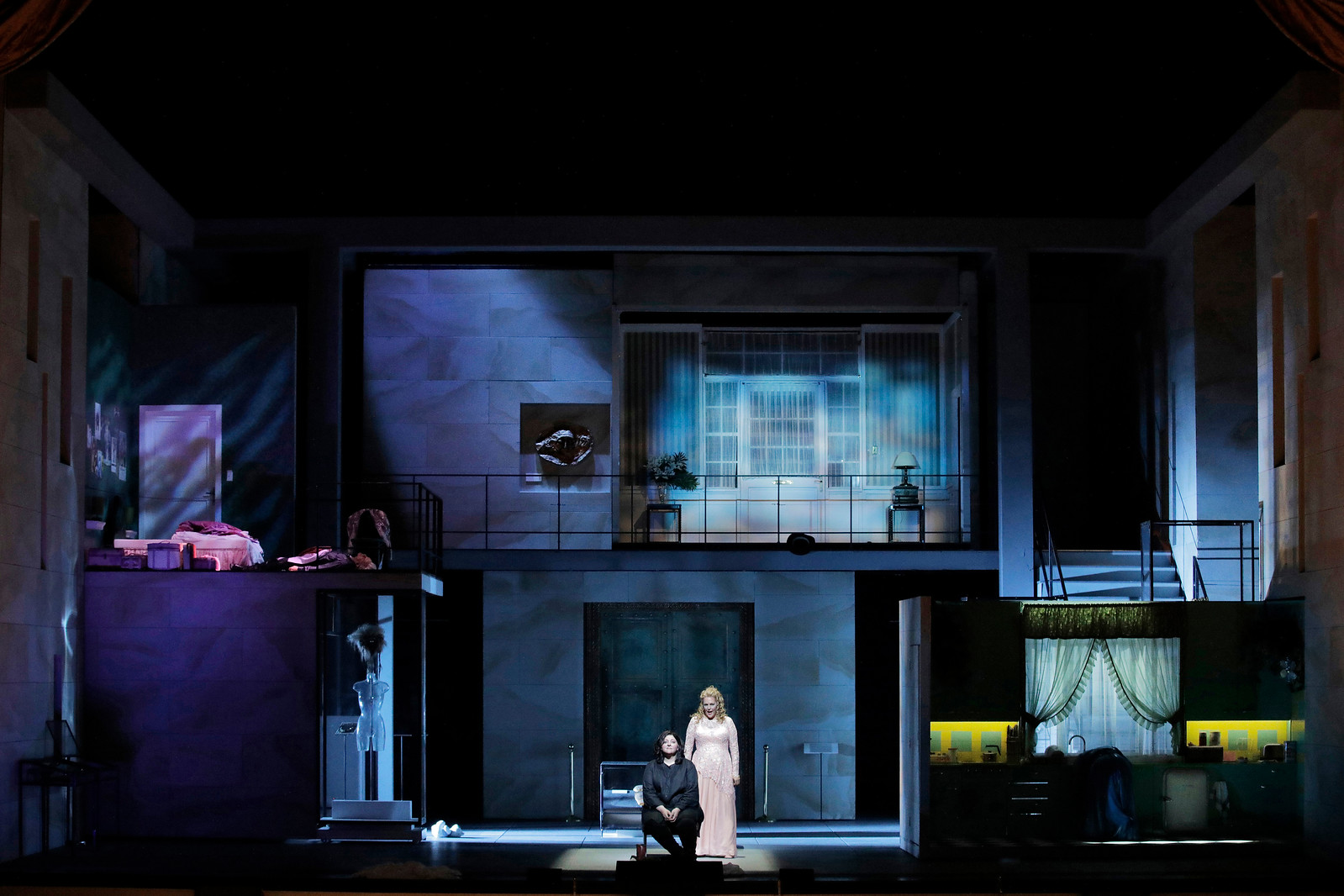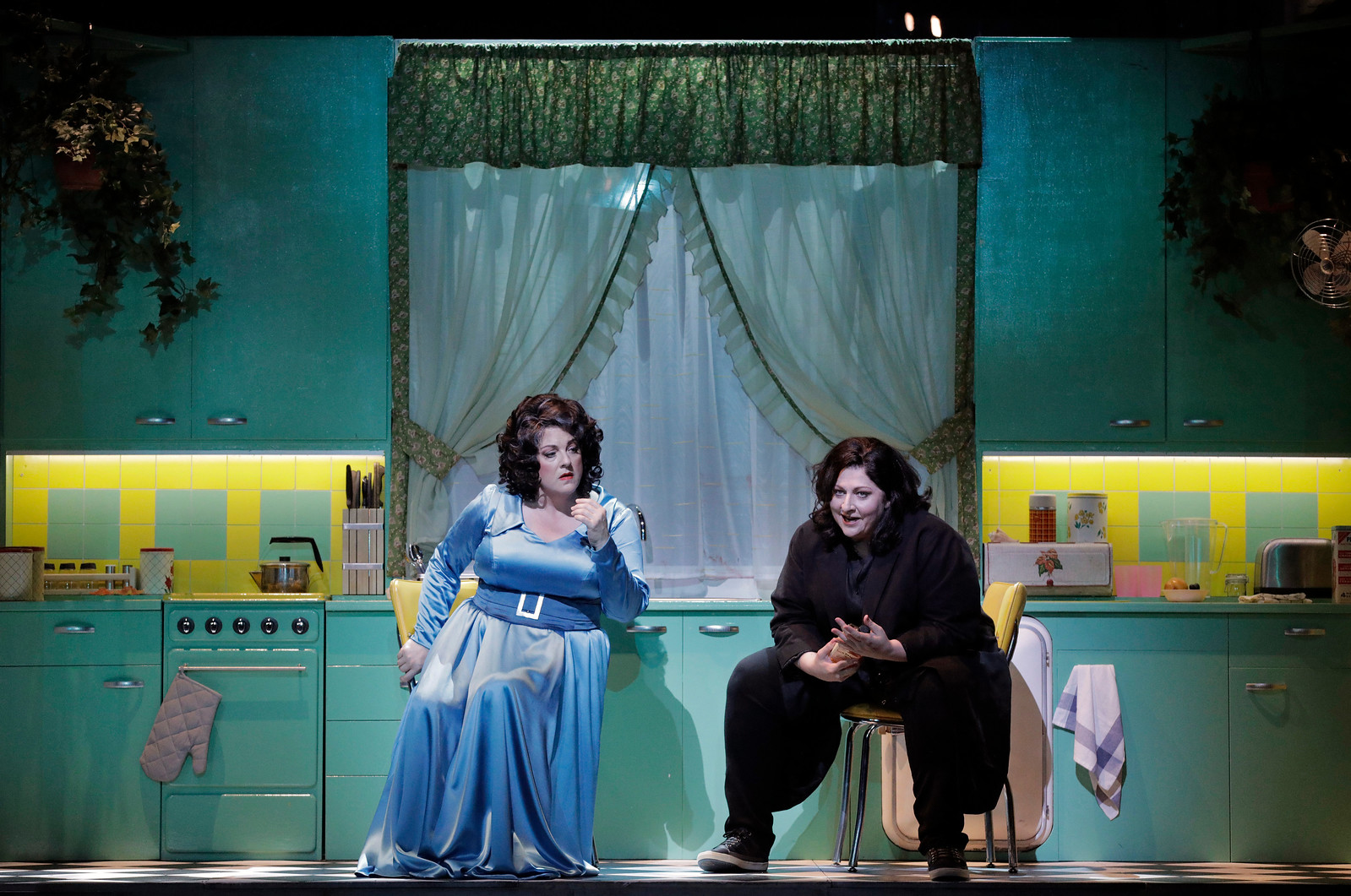Strong Women Dominate SF Opera’s Powerhouse ‘Elektra’
/By Elsa Tranter
10/1/2017
Photos by Cory Weaver, San Francisco Opera
San Francisco’s War Memorial Opera House was electric on the 27th of September, at the close of the 102-minute, no-intermission, performance of “Elektra” – Richard Strauss’s intense opera of rage, retribution, revenge and incest. The house was filled with the largest ever orchestra in the pit, 95 musicians playing to perfection under the baton of Hungarian conductor Henrik Nánási, making an impressive San Francisco debut. The sound was overwhelming in the best possible way, drawing everyone in and surrounding us with the many moods of the drama.
“Elektra” is not an easy opera to listen to without preparation, but the payoff is enormous with the proper homework (listening in advance as well as becoming familiar with the story line). There is a lot written about the story, from the original Sophoclean drama to the Freudian Electra Complex and the Eugene O’Neill play “Mourning Becomes Electra” with many other stories/plays/essays as well. There are many reasons why the character of Electra (Elektra is the German spelling) still resonates with the modern audience. One is the moral ambiguity of the character; another is the challenge of the conflict between justice and non-violence. Patricide is always a hot topic and possible incest is another; and there are currently many events that are brought to mind when viewing a performance of “Elektra”.
Strauss composed the opera from a libretto by Hugo von Hofmannsthal; its first performance was in 1909, with the first San Francisco production in 1938. This year marks the 10th series of performances in S.F. and the first since 1997.



The cast was all-North American—good news to know about the future of opera on this continent. The title role was sung by soprano Christine Goerke, who has also sung Elektra at the Royal Opera House, Covent Garden and at Lyric Opera of Chicago. She is also noted for other Strauss roles, including the Dyer’s Wife in “Die Frau ohne Schatten” at the Met, and for Wagnerian roles including Brünnhilde most recently in Houston. Her only other role in San Francisco, however, was as Roselinda in “Die Fledermaus” in 2006. She was masterful in the role of Elektra, with her voice rich, full, and dominating in every scene. Dressed in basic unadorned black and ready for action in black running shoes, she moved with energy and grace all over the stage. Her face and body pulsated with emotion, complementing her strong singing. The recognition scene with her brother was particularly emotionally compelling. It was altogether a commanding performance, a real star turn. She’ll be seen in this role in Houston and New York and in the full Ring cycle in Chicago and New York . She should return to the San Francisco stage soon.
Mezzo-soprano Michaela Martens made her role debut as Klytemnestra, the murderous and guilt-ridden mother; she played it well, and sang with a strength and harshness befitting the part. It must be tough to perform such an unsympathetic character. In the original drama, we know the back story of her husband King Agamemnon having to kill their daughter Iphigenia in order to appease the gods; we can have some understanding of (if still not a lot of sympathy for) the Queen’s actions in killing him when he returns from the war years later. In the opera, that part is missing and she is pure evil. Her death is particularly gruesome. Ms. Martens sang the role of Cassandre in “Les Troyens” in San Francisco in 2015 to great effect and will reprise the role of Klytemnestra with Houston Grand Opera in January.
Canadian soprano Adrianne Pieczonka sang the role of Elektra’s sister Chrysothemis; she has played this part at the Met, at Covent Garden and in many other places around the world. She was the perfect golden girl sister, looking like a frown-up Goldilocks, in stark contrast to the dark Elektra. She did not cry out for revenge as her sister did, but wanted peace above violence. Her voice rang out bright and clear as befitted her appearance. Her performance rounded out the trio of women in a satisfying way.
Making his San Francisco Opera debut as the avenging returned brother Orest was bass-baritone Alfred Walker. His voice was certainly on par with the women, but his acting was a bit wooden. Perhaps it was the military uniform that he wore: it seemed to restrict his movements, but maybe it only seemed that way because the three women were so dramatic.
Tenor Robert Brubaker played the small role of Klytemnestra’s lover Aegisth. With not much to do, he sang his part well and died effectively.
The five maidservants were Rhoslyn Jones, Sarah Cambidge, Jill Grove, Laura Krumm and Nicole Birkland. Over the years the roles of the maidservants have been a springboard for young, starry talent including Beverly Sills, Dolora Zajick, Kristine Jepson and Patricia Racette. We’ll see who among this quintet goes on to big careers.
Other small parts were sung by Alexandra Loutsion, Erin Neff, Amina Edris, Kyle van Schoonhoven, Bojan Knezevic and Anthony Reed. Each one was satisfying—no weak links i this chain.
Leaving the less good aspects for last, the staging/costumes/set design (Keith Warner/Anja Kuhnhold, Kasper Glarner and Boris Kudlicka in charge of those) were less than satisfying for me. The open stage represented a modern museum with an exhibit of antiquities. Visitors were asked to leave at closing time and all did but one. She is obsessed with the fall of the house of Atreus; the rest is her dream/fantasy/nightmare. In the main part of the opera itself the characters were in timeless costumes but the whole effect still seemed too modern and too busy. I’d have preferred to focus on the singing without having to follow so much movement. Still, that’s a small complaint in an evening otherwise so mind-bogglingly intense and powerful.
This opera is not for everyone – it’s definitely not “Der Rosenkavalier” – but it has a raw and slightly dissonant beauty that is hard to beat. Those who do their homework in advance will be amply rewarded by music that can blow you away.
Elsa Tranter is a Bostonian who has lived in Berkeley for over 40 years and has been an opera goer for most of those years. She worked as a graduate student adviser at UC Berkeley and still attends Cal Performances regularly. Her favorite composer is Wagner and her favorite opera is Tristan und Isolde.






